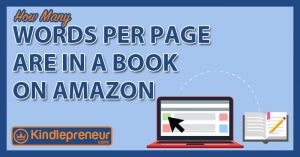Intro
Isn’t it best when the question you have has an exact answer to it? You just do accordingly. However, there are some practical questions for which there is no one-size-fits-all answer. The question: how many words per page in a book?
If you’re sitting with a half-finished manuscript, staring at your word count, you have probably asked yourself this question and wonder about it. How many words per page should my book have? It is something every writer faces. After all, pages are how readers experience your work, not word count.
The truth is, words per page are more than just numbers. They decide pacing, influence publishing costs, and shape how your story feels in the reader’s hands. A slim 150-page paperback has a different weight, both literally and emotionally, than a 500-page fantasy epic.
This isn’t about rules! It is about control, planning, and giving your book the best chance to reach its audience. Dont worry, these are not trivial!
We provide you with the ultimate guide, which will walk you through everything you need to know. The averages! The variations. The different types of writers and how they use pages, the author and writer difference, and what you can actually do with this information.
Think of this as a roadmap to help you not just write, but publish wisely.

Counting the Words: Words Per Page in a Book
Everything has an average. Average height. Average weight. Average calories, and likewise average words per page. Now, assume your book is industry standard: 12-point font, Times New Roman or Garamond, double-spaced lines, and a 6 x 9-inch trim size.
How to Estimate Your Pages while Writing?
So, keeping the book in mind, if you are writing in Microsoft Word or Google Docs, here’s how to estimate your pages while you write.
Take your total word count and divide it by 250. That gives you the approximate page count in a book format.
For example, if your draft is 60,000 words, you’re looking at around 240 pages. That’s a solid length for most genres.
(table) Manuscript word count / approximate number of book pages
- 25,000/ 100 pages (novella)
- 50,000 / 200 pages (short novel)
- 75,000 / 300 Pages (standard novel)
- 100,000 / 400 Pages (epic fantasy)
How Many Words Per Page in a Book?
This is a figure that you can use as a good benchmark for planning.
But this is not the case for every book. A page in a romance novel full of dialogue may have just 180 words. An academic text can be concise, typically ranging from 350 to 400 words, with tight margins and minimal white space.

A quick look at common averages (table format)
- format/ average words per page
- Standard Paperback (6×9) / 250-300 words
- Hardcover trade size / 300-350 words
- Kindle/eBook (adjustable) / 200-250 words
- Academic A4 (single spread) / 500-600 words
Think of a page like a canvas. It is how the reader wants to set it story. So while the average words per page lands at 250-300, your story’s format, genre, and design choices can change that significantly.
Why do words per page matter for writers?
You might wonder: why spend time on this at all? Isn’t the story what matters?
Yes! But the word counts per page are part of how that story lies.
They matter because:
For Writers:
Word counts help you estimate the length of a book. Aiming for 80,000 words? You are looking at around 300 pages. A standard novel length that publishers expect.
For Readers:
Pages influence pace. White space speeds reading up; dense blocks slow it down. The look of the page sets the mood before the words even sink in.
For Publishers:
Printing costs depend on page count. A 400-page book costs more to produce and ship than a 200-page one.
For Storytelling itself:
The word per page is a kind of rhythm and pace-setting mechanism. Too few feels shallow, and too many can be overwhelming. Balance is where magic happens.
Words on a page are like beats in music. Each beat matters, and together they form a rhythm that you can dance to. Words do exactly the same thing. They can build up momentum so the reader turns the page to read the next part of the story.
Famous Books and Words are on their Pages?
It is easier to understand when you see it in action. Here are some famous books and their approximate words per page.
J.K. Rowling ~ 255 words per page
For Harry Potter and the Philosopher’s Stone and other books, providing a light, dialogue-driven experience designed for younger readers.
Stephen King – with almost 300 words per page
Whether in The Shining or IT, the denser paragraphs create slower suspense and a firm grip for horror fans.
James Clear ~ 280 words per page.
Atomic Habits strikes a balance of clarity and substance, making it an ideal choice for nonfiction.
So when you ask, How many words are on a page in a book, remember: the answer depends on the story you are telling. The dialogue-heavy thriller appears quite different from the research-packed business guides.
How Many Words Per Page are in a Book on Amazon?
If you’re publishing through Amazon KDP, this matters even more. Amazon doesn’t treat pages the same way traditional publishers do. If you are self-publishing, here’s what really happens:
Kindle eBooks – Amazon uses a system called KENPC – Kindle Edition Normalized Page Count – to calculate pages for Kindle Unlimited royalties. On average, one Amazon eBook page equals 187-200 words. This is lower than print because font size and screen settings are flexible.
Amazon paperbacks – These follow print standards, averaging 250 – 300 words per page. But here the twist: Amazon calculates your book’s page count based on the manuscripts you uploaded. Change your font size, margins, or trim size, and the ‘official’ page count shifts even if the word count stays the same!
| Format | Words Per Page | Notes |
| Kindle eBook (KENPC) | 187–200 | Used for Kindle Unlimited payouts, varies with device |
| Paperback (KDP) | 250–300 | Based on trim size, margins, and font in your manuscript |
This means two authors with the same 60,000-word manuscript could end up with very different ‘Amazon page counts’ depending on formatting. For eBooks, it could show around 300 Amazon Pages; for print, it might run 200-240 pages.
The Real Math Behind Average Words Per Page
Why is the average words per page such a big deal? Well, because it impacts everything from story structure to sales copy.
First, you need to know the genre. The average number of words per page changes according to that; for example, a YA romance at 180 pages feels right, but a fantasy novel of the same length feels unfinished. Historical fiction often tends to be longer, while thrillers and romance tend to be shorter.
Second, you gain the reader’s trust. Imagine picking up a business book that promises quick insights, only to find it is 600 dense pages. Page length signals tone and purpose before a single word is read.
And finally, you know that the average word determines the chapter’s rhythm. If one chapter drags on for 40 pages and the next is only six. The flow is uneven. Understanding the average page length helps you balance pacing so the story keeps readers turning pages.
When you know the math, you stop treating page count like a mystery. Instead, it becomes a tool that helps you write comfortably and confidently, ensuring your book lands in the right range for its genre and audience.

Publishing Costs and Words Per Page
Once you know how many words fit on a page and what the real math behind it is, the next question is often, What does that mean for publishing costs? The reason behind this is that in the world of self-publishing, page count not only affects how a book feels in a reader’s hand but also directly impacts the cost of production and the amount of profit you will retain.
Printing Cost Scales With Pages
Platforms like Amazon KDP charge based on the number of pages, not the number of words. A 200-page paperback is cheaper to print than a 400-page one, even if both manuscripts contain 80,000 words. Why? Because denser formatting packs more words onto fewer pages, it lowers costs.
Pricing Flexibility
Page count also influences how you price your book. Readers expect to pay less for a 150-page novella than for a 500-page epic. If your book is shorter, you may need to price competitively. If it’s longer, you can set a higher price — but only if your audience sees the value.
Royalties and Profit Margin
With self-publishing, royalties are calculated after deducting printing costs. For example, if Amazon charges $3.50 to print your 240-page book, and you sell it for $12.99, your royalty comes from what’s left after that deduction. Add 100 more pages, and that base cost rises, leaving you with less profit per sale.
In short, understanding average words per page helps you do more than plan chapters. It gives you control over the hidden side of publishing. The production math that decides whether your book is affordable, profitable, and attractive to readers.
Different Types of Writers and Their Page Choices
Every writer fills a page differently. Here is how different types of writers use space:
-
Dialogue-driven writers
| lots of white space | 150 – 200 words per page | Think Romance | YA | Thrillers |
-
World-builders
| Heavy on description | 300 – 350 words per page | Common in fantasy and sci-fi |
-
Non-Fiction Writers
| Balanced | aiming for clarity | 270-300 words per page | balanced |
-
Academic Writers
| Go Dense | Packed with details | Citations and Notes| 500+ words per A4 Page |
The type of writing you’re actually using shapes not only your story but also the physical weight of your book.
FAQs About Words Per Page in a Book
How many words is a 300-page book?
On average, a 300-page book contains 75,000 to 90,000 words, depending on genre and formatting.
How many words per A4 page?
With single spacing, an A4 page contains approximately 500–600 words. When double-spaced, it fits about 250–300 words.
What do 1200 words look like?
Approximately 4–5 pages of a book or 2–3 typed manuscript pages (double-spaced, 12-point font).
How much do authors make per book?
Traditionally published authors earn 10–15% royalties, while self-published authors on Amazon can earn between 35% and 70%, but they are responsible for marketing and distribution.
What makes a book sell well?
Strong ideas, polished editing, professional design, and smart marketing. The page count meets expectations, but it is the content and presentation that truly drive sales.
Final Thoughts: Turning Word Counts into a Writer’s Roadmap
So, how many words per page are in a book? The average ranges from 250 to 300, but what really matters is how you leverage that number. It’s not just trivia — it’s a planning tool, a pacing guide, and a way to align your manuscript with readers’ and publishers’ expectations.
Think of it like a map: once you know the terrain, you can choose your own path. A dialogue-heavy romance may keep pages light, while a fantasy epic might stretch them longer. Amazon will count your pages one way, and a traditional printer will count them another way. With this knowledge, none of it should come as a surprise.
Use these insights to:
- Plan your chapters with steady pacing.
- Set realistic writing goals and track progress.
- Understand publishing costs before you hit submit.
- Present your book confidently to readers and platforms alike.
At the end of the day, words per page are more than just math. They serve as a bridge between your draft and the finished book your readers will enjoy. Now you understand the averages, the variations, and the practical steps — the rest is about writing your story with clarity and purpose.




